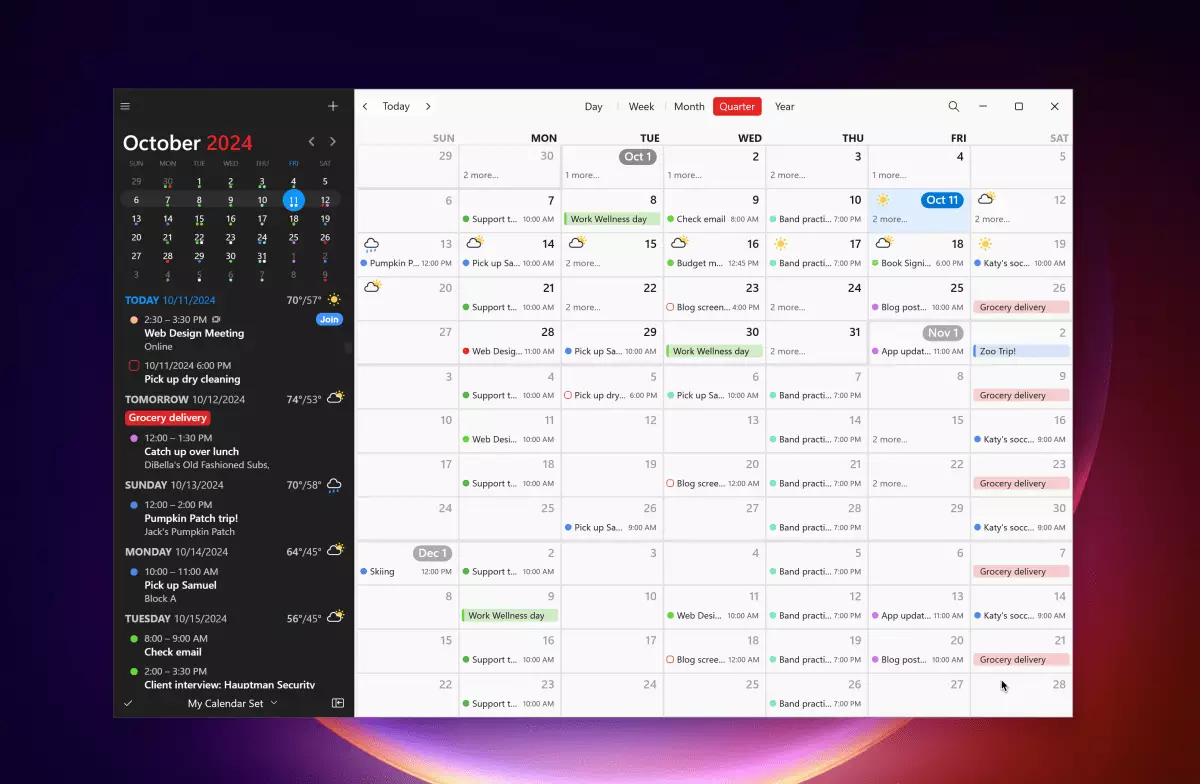In the crowded landscape of calendar applications, very few have managed to maintain their relevance over the years, let alone thrive across multiple platforms. Fantastical, developed by Flexibits, is a notable exception. Since its inception in 2011 as a Mac-exclusive application, it has evolved into a versatile productivity tool that seamlessly integrates with macOS, iOS, and now, Windows. This article delves into the evolution of Fantastical, its unique features, and its implications for users across different operating systems.
Fantastical debuted during a time when calendar applications were beginning to take on a more prominent role in everyday productivity. The creators at Flexibits set out not just to develop a basic scheduling tool, but to build an innovative solution that could adapt to the needs of its users. Over the past 13 years, their commitment to continuous improvement has ensured that the app stays relevant amid the shifting sands of technology.
With the release of Fantastical on Windows, Flexibits has taken a significant step to reach a broader audience. Co-founder Michael Simmons emphasizes that the development team has dedicated three years to making the Windows version reflect the same powerful functionality found in its Apple counterparts. This strategic move recognizes the vast market of Windows users who require efficient calendar management, and thus the desire for productivity transcends brand loyalty.
One of the standout features of Fantastical is its ability to aggregate various calendar accounts into a single interface. Whether users rely on Google Workspace, Microsoft 365, or iCloud, they no longer have to jump between different applications to manage their schedules. This consolidation not only simplifies calendar management but also streamlines productivity for users juggling personal and professional commitments.
Simmons asserts that the mission of Fantastical extends beyond catering to Apple enthusiasts; rather, it aims to offer a superior productivity experience for all. By venturing into the Windows ecosystem, Flexibits acknowledges that many professionals use Windows PCs in their workplaces, and this consideration reflects the company’s commitment to inclusivity in productivity solutions.
Fantastical is not just another calendar app; it integrates a suite of well-thought-out features designed to enhance user experience. One particularly attractive functionality is the use of natural language for event creation. Users can input entries in conversational terms—”Lunch with Tim Cook on Tuesday at Caffè Macs”—and Fantastical intelligently parses this into a structured calendar event. This intuitive feature minimizes the friction often encountered in manually scheduling tasks.
Furthermore, the app’s “Openings” feature resembles functionality from scheduling giants like Calendly, allowing users to create shareable links for events. This feature becomes especially useful for organizing social engagements or business meetings, saving time and fostering collaboration. For professionals heavily reliant on conference calls, Fantastical’s ability to identify and link conference call details in invites further emphasizes its robust functionality.
Flexibits’ commitment to maintaining feature parity across all platforms signifies a crucial development for users who switch between devices. Many individuals operate Macs at home and Windows PCs at the office, which often leads to a disjointed experience when it comes to productivity tools. By ensuring that all updates occur simultaneously across platforms, Fantastical users can enjoy a seamless experience regardless of their operating system.
The introduction of the Windows app comes with the same premium subscription model applied to its Apple versions. While the base version of Fantastical is free, access to enhanced features requires a premium subscription. At $4.75 per month when billed annually, this pricing strategy remains unchanged with the new release. This model allows users flexibility while ensuring ongoing support and development for the app as it evolves.
While the expansion to Windows marks a significant milestone for Fantastical, users should temper their expectations regarding future platform adaptations. Simmons has indicated that an Android version is not currently on the horizon. He conveys a belief that the Android market does not align with the company’s vision for user experience and functionality. This decision highlights the challenges indie developers face in navigating diverse ecosystems, especially concerning the evolving expectations and demands of app markets.
Fantastical’s transition from a Mac-exclusive app to a multi-platform powerhouse exemplifies its commitment to enhancing productivity for a broader audience. Amid shifting market trends and consumer preferences, the strength of Fantastical lies in its thoughtful design, user-centric features, and dedication to continuous improvement. As the app evolves, it will be compelling to witness how Flexibits further shapes the future of calendar management across diverse operating systems.

